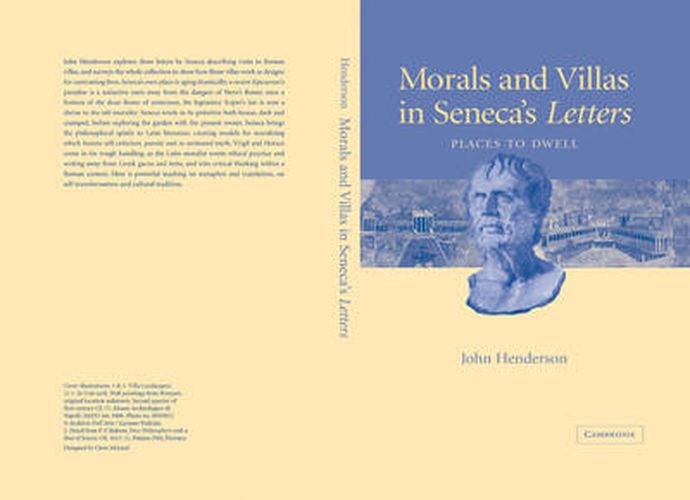Readings Newsletter
Become a Readings Member to make your shopping experience even easier.
Sign in or sign up for free!
You’re not far away from qualifying for FREE standard shipping within Australia
You’ve qualified for FREE standard shipping within Australia
The cart is loading…






John Henderson explores three letters of Seneca describing visits to Roman villas, and surveys the whole collection to show how these villas work as designs for contrasting lives. Seneca’s own place is ageing drastically; a recent Epicurean’s paradise is a seductive oasis away from the dangers of Nero’s Rome; once a fortress of the dour Rome of yesteryear, the legendary Scipio’s lair was now a shrine to the old morality: Seneca revels in its primitive bath-house, dark and cramped, before exploring the garden with the present owner. Seneca brings the philosophical epistle to Latin literature, creating models for moralizing which feature self-criticism, parody, and re-animated myth. Virgil and Horace come in for rough handling, as the Latin moralist wrests ethical practice and writing away from Greek gurus and texts, and into critical thinking within a Roman context. Here is powerful teaching on metaphor and translation, on self-transformation and cultural tradition.
$9.00 standard shipping within Australia
FREE standard shipping within Australia for orders over $100.00
Express & International shipping calculated at checkout
John Henderson explores three letters of Seneca describing visits to Roman villas, and surveys the whole collection to show how these villas work as designs for contrasting lives. Seneca’s own place is ageing drastically; a recent Epicurean’s paradise is a seductive oasis away from the dangers of Nero’s Rome; once a fortress of the dour Rome of yesteryear, the legendary Scipio’s lair was now a shrine to the old morality: Seneca revels in its primitive bath-house, dark and cramped, before exploring the garden with the present owner. Seneca brings the philosophical epistle to Latin literature, creating models for moralizing which feature self-criticism, parody, and re-animated myth. Virgil and Horace come in for rough handling, as the Latin moralist wrests ethical practice and writing away from Greek gurus and texts, and into critical thinking within a Roman context. Here is powerful teaching on metaphor and translation, on self-transformation and cultural tradition.